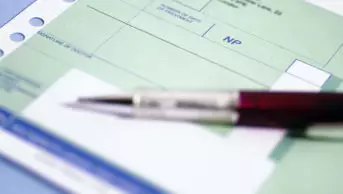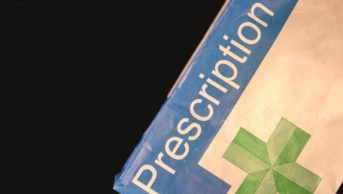
Shutterstock.com
Asthma UK is calling for Matt Hancock, health and social care secretary, to stop “unfair” prescription charges in England, so that people with asthma no longer have to “pay to breathe”.
The charity said that three-quarters of patients who have to pay for asthma prescriptions struggle to afford them, exacerbating inequalities for people with asthma.
In November 2018, Asthma UK carried out the “largest ever” survey on asthma prescription charges and gathered responses from more than 9,000 people.
The survey found that three out of four people with asthma who have to pay for their prescriptions have struggled to afford them, and 35% of respondents had, at times, needed to cut back on food to be able to pay for their asthma medication.
The survey also revealed that more than half (57%) of people who pay for their prescriptions have, at some point, cut back on their medication owing to the cost. Furthermore, more than 80% of respondents said that cutting back on their medication had made their asthma symptoms worse and 24% said it resulted in them having an asthma attack.
Regional variations were also identified in the survey. In the north east of England, 81% of people with asthma said they were struggling to afford their medication, compared with 70% in London.
“Prescription charges are an unfair ‘tax’ on people with asthma — a long-term condition that is not controllable without medication for life,” Asthma UK said in its report ‘Paying to breathe: why unfair asthma prescription charges must be stopped’, published on 26 February 2019.
The charity has also launched a petition calling for the scrapping of prescription charges for asthma medication.
Toby Capstick, a consultant pharmacist in respiratory medicine and chair of the UK Clinical Pharmacy Association Respiratory Group, said the evidence from the survey “overwhelmingly” demonstrated that prescription charges are a significant barrier for patients accessing and adhering to treatment.
“It is shocking to read how the survey describes how prescription charges impact on everyday life, with many reporting that they have had to cut back on food and spending on their children to afford regular prescription charges, and how this also disproportionally affects low-income families.”
However, he said it was important to bear in mind that, ordinarily, 52% of people in England pay for their prescriptions, while the percentage of responders to the survey who paid for their prescriptions was 84%.
“This suggests that there may be some responder bias in the survey and may overestimate the actual position,” Capstick said.
The Royal Pharmaceutical Society (RPS) is calling for free prescriptions in England. In response to the government’s announcement that prescription charges would be increased to £9 per item from 1 April 2019, Sandra Gidley, chair of the RPS English Pharmacy Board, said: “Every day, pharmacists are asked by patients who are unable to afford all the items on their prescription which ones they could ‘do without’. Patients shouldn’t have to make choices which involve rationing their medicines.”
You may also be interested in

Government proposes raising qualifying age for free NHS prescriptions to 66 years

Labour government would axe prescription charges, says shadow health secretary
